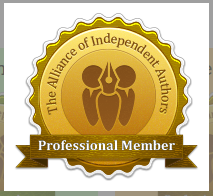|
In this week's post, I want to share five books I've found helpful along my writing journey. They cover a range of topics from mindset to productivity, and I dip into them regularly. I hope you find them useful. To view each book on Amazon UK, click or tap the individual images. 1: Rachel Aaron - 2k to 10k: Writing Faster, Writing Better, and Writing More of What You Love
2: Libbie Hawker - Take Off Your Pants!: Outline Your Books for Faster, Better Writing
3: Jacqueline Garlick - The End: Edit Smarter Not Harder: Ten Simple Fix-Its Guaranteed To Strengthen Any Manuscript
4: Joanna Penn - How to Make a Living with Your Writing: Books, Blogging and More
5: Honoree Corder - Prosperity for Writers: A Writer's Guide to Creating Abundance
I hope you've found these suggestions useful! Are there any books you've found helpful in your writing journey? Leave a comment and let me know!
0 Comments
Novel writing and the urge to travel I have been passionate about foreign travel for as long as I can remember. During my twenties I did various solo trips within Europe, but yearned for more. My first big travel adventure started in 1989, when I embarked on a nine-month journey to Asia, Australia, New Zealand, the USA and Canada. Things were rough at first - nothing could have prepared me for India, my first stop. The noise, dirt, hustle and bustle almost proved overwhelming, especially when I was struck down by dysentery, a horror I hope never to experience again! Throughout the nine months, I grew more travel-hardy and overall had a fantastic trip. Over the ensuing decades I have carried on travelling, having written 'His Kidnapper's Shoes' on a year-long visit to Asia and South America. Since my return I have become a full-time novelist, and in the future I'd like to combine the two great passions of my life by becoming a nomadic novelist. After all, I can write my books anywhere in the world via my laptop. I'm currently planning my next adventure! As part of my 'Five' series, I though it would be fun to examine five other novelists who have been keen travellers, or whose trips have influenced their work. So, without further ado, let's pack our bags and journey to some amazing locations! 1. America's South-West - Vladimir Nabokov
2. The French Riviera - Scott Fitzgerald
3. The Florida Keys - Ernest Hemingway
4. Henry Miller - Paris
5. Cornwall, UK - Virginia Woolf
In this week's post, I continue my 'Five' series, examining novels that proved highly controversial on their release. I'm a firm believer in adults being able to read whatever they choose. In my view, just because a book offends some people (usually because of sex or religion, those perennially divisive subjects!) it's no reason to deny it to others. The difficulty for this post was, of course, narrowing my selection down to five! Authors have frequently challenged prevailing social attitudes, giving me a deep pool from which to make my selection. Eventually I chose the following novels. 1. 'Brave New World' by Aldous Huxley 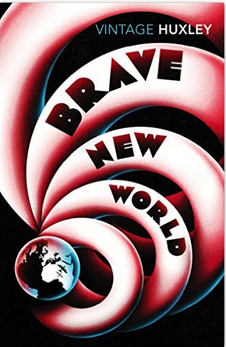 Aldous Huxley wrote 'Brave New World' in 1931, with publication taking place in 1932. From the start, the novel sparked controversy, being banned in Ireland on the grounds of offensive language and anti-religious themes. Not much has changed in the decades since, with the novel becoming one of the most hotly debated books in America. Readers have been infuriated by its sexually explicit scenes and bad language. It has also been banned in India due to its sexual content. As if that weren't enough, in 1982 Polish author Antoni Smuszkiewicz accused Huxley of plagiarism, citing two Polish novels written in the 1920s. According to him, their similarity to 'Brave New World' was so great that Huxley must have poached their plots. It's definitely a controversial book! Here's a synopsis: Far in the future, the World Controllers have created the ideal society. Through clever use of genetic engineering, brainwashing and recreational sex and drugs all its members are happy consumers. Bernard Marx seems alone harbouring an ill-defined longing to break free. A visit to one of the few remaining Savage Reservations where the old, imperfect life still continues, may be the cure for his distress... Sounds fascinating! I can't believe I've not yet read this classic novel, so it's going on my list. 2. 'Ulysses' by James Joyce 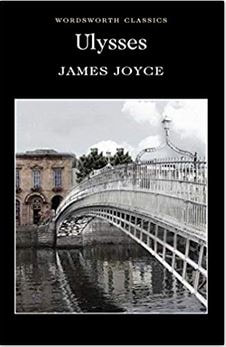 'Ulysses' first appeared in serial form and was then published as a novel in 1922 in Paris. Why France, when Joyce was Irish and the serialisation took place in an American journal? Controversial from the start, the book was banned in Ireland, the United States and Britain because it was considered obscene. As well as sexual imagery, 'Ulysses' includes detailed descriptions of bodily functions such as masturbation, menstruation and defecation. The Parisian publishing house clearly wasn't fazed by such matters. The book recounts the various events which befall Leopold Bloom and Stephen Dedalus in Dublin on 16 June 1904, including Bloom's wife, Molly, committing adultery. Hailed by critics such as T S Eliot yet reviled by others, e.g. Virginia Woolf, the serialised version was the subject of an obscenity trial in the US, leading to the novel being banned in that country. Copies were burned and incoming shipments were seized by customs officials. In the 1930s a US court ruling overturned the obscenity charge, making America the first English-speaking country to allow the book. What fascinates me is the unusual structure. Joyce divided 'Ulysses' into eighteen chapters called episodes, saying he had "put in so many enigmas and puzzles that it will keep the professors busy for centuries arguing over what I meant". The characters and theme of each episode correspond to those in Homer's 'Odyssey'. Sounds intriguing - another one for my reading list! 3. 'Lady Chatterley's Lover' by D H Lawrence 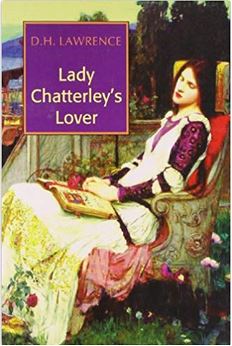 First published in Italy in 1928, the full version of 'Lady Chatterley's Lover' didn't appear in the UK until 1960. Upon its release, the publishers, Penguin Books, were tried under The Obscene Publications Act 1959, making this an important test case for the new law. The book had become notorious for its story of the relationship between two individuals from different social classes, explicit descriptions of sex and profanity. The verdict, a triumph for common sense and literary freedom in my opinion, was a 'not guilty' one. To twenty-first century readers, the book won't deliver the same kind of shock it did in the nineteen twenties. Back then, the sexual content and swearing held far more power to offend, but I suspect the main reason for the disapproval it generated was the story's crossing of class divisions. The book has also been banned and featured in obscenity trials in Australia, America, Japan, India and Canada. Here's a synopsis: Constance Reid marries Sir Clifford Chatterley, who becomes paralysed from the waist down after the First World War. Desperate for an heir and embarrassed by his inability to satisfy his wife sexually, Clifford gives the go-ahead for her to have an affair, envisaging she will choose someone from their immediate social circle. Instead, Constance begins a passionate relationship with their married gamekeeper, Oliver Mellors, inciting Clifford's ingrained class prejudices. The story ends with Mellors working on a farm, waiting for his divorce, with Connie, now pregnant, living with her sister. The expectation is that, eventually, they will be together. 4. 'Tropic of Cancer' by Henry Miller 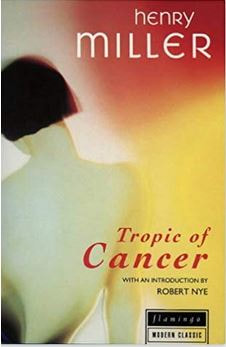 Henry Miller wrote 'Tropic of Cancer' in the early 1930s, and it was originally published in Paris in 1934. The book was banned in the US for more than thirty years because it was considered pornographic. Grove Press published it in America in 1961, leading to more than sixty obscenity trials until (finally!) the Supreme Court ruled it a work of literature in 1964. Other English-speaking countries, such as Canada and the UK, banned 'Tropic of Cancer'. Only smuggled copies of the book were available in the United Kingdom from 1934 onwards. Scotland Yard contemplated banning its publication in Britain in the 1960s, but decided against the move because people like T S Eliot were ready to defend the book publicly. Another victory for literary freedom! So what was all the fuss about? Set in Paris in the 1930s, the book is largely autobiographical, featuring a starving American writer who lives a bohemian life among prostitutes, pimps, and artists. Meaning lots of sex - oh, the horror! Miller gave the following explanation of the book's unusual title. "To me cancer symbolises the disease of civilisation, the endpoint of the wrong path, the necessity to change course radically, to start completely over from scratch.” Yet another one to add to my reading list! 5. 'Lolita' by Vladimir Nabokov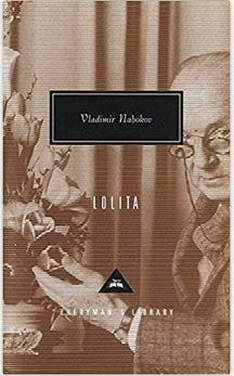 'Lolita' was written in English by its Russian author, Vladimir Nabokov, and first published in Paris in 1955. It seems French attitudes to controversial subjects are more relaxed than those of the US and UK. I can't help noticing how the books I'm featuring in this post often gained acceptance first in Paris. American and English versions followed in 1958 and 1959. The initial reaction was mixed. Graham Greene, in the Sunday Times, called it one of the three best books of 1955, whereas John Gordon, editor of the Sunday Express, dubbed it the filthiest book he had ever read. The Home Office promptly seized all copies entering the UK, and in 1956 France banned 'Lolita' for two years, thus blotting their liberal copybook. The US, however, reacted differently, and the book has never been banned there. A novel about a man who marries a woman so he can embark upon a relationship with her twelve-year-old daughter is bound to be controversial. The furore rumbles on today; recent sex abuse cases coming to light have ensured the book remains a source of debate. Critics disagree as to whether Lolita was a victim or a willing participant in her sexual relationship with the protagonist Humbert Humbert. Some have interpreted their liaison not as the corruption of an innocent child by a cunning adult, but the exploitation of a weak adult by a corrupt child. Others have labelled Humbert a rapist and paedophile. The book's influence is such that the name Lolita has passed into common usage to describe a sexually provocative young girl. Let's hear from you! Have you read any of the books I've featured in this post? Do any of them offend you? Or perhaps you consider them victims of outmoded thinking? Leave a comment and let me know!
My fifth novel, 'After She's Gone', has a strong theme of arson throughout the narrative. In my opinion, arson lends itself well to novel plots, as authors can use the crime to cover up other nefarious deeds such as murder. The research I needed to do for my book was fascinating and at times quite unnerving! As part of my 'Five' series, I thought it would be fun to examine five novels that have also used arson or fire as their dominant theme. Here goes! 1. 'The Arsonist' by Sue Miller
2. 'Death du Jour' by Kathy Reichs
3. 'Blue Smoke' by Nora Roberts
4. 'Afterwards' by Rosamund Lupton
5. 'Fahrenheit 451' by Ray Bradbury
For the last thirty years, I've been a travelholic, indulging my passion for globetrotting as often as possible. Recently, I've read some novels set in unusual locations, which inspired this latest post in the 'Five' series. I'm going to examine five novels all set in places that don't often feature in English-language fiction, only one of which I've been to. The other four are on my radar, however, for future trips! So sit back, relax, and let's go globetrotting to some wonderful locations, brought to us in fictional form. We'll travel to Mauritius, Bulgaria, St Vincent, Mongolia and Antarctica. I'll describe a little about each place, and then talk about a novel that's set there. Maybe this will whet your appetite to read the book, travel to the location, or both! 1. Saint Vincent and the Grenadines  Saint Vincent and the Grenadines is an island country, part of the Lesser Antilles in the Caribbean. It consists of the main island of Saint Vincent and the northern two-thirds of the Grenadines, a chain of smaller islands stretching south from Saint Vincent. The capital and main port is Kingston. Whilst the official language is English, most Vincentians speak Creole, particularly at home and among friends. Saint Vincent is volcanic, and there is little level ground, with the windward side being very rocky and steep. Banana cultivation dominates the economy, although tourism also plays an important part. The latter was boosted by the filing of the 'Pirates of the Caribbean' movies on the island. Look at the photo - isn't that beautiful? 'Deadlight' by Michael Smart Novelist Michael Smart sets his Bequia mysteries in the Eastern Caribbean, where he spent eight years living and enjoying the sailing. His latest release, 'Deadlight', has now been published and features Saint Vincent. Here's the synopsis: Commissioner of Police Mike Daniels copes with the political fallout resulting from the scandals uncovered by Superintendent Jolene Johanssen, whilst he investigates the murder of an undercover constable, and completes the task of cleaning up the police force before a new Prime Minister replaces him as Commissioner of Police. Corrupt cops and politicians, and two murders, lead Commissioner Daniels. Superintendent Johanssen and Nicholas Gage to the man behind the conspiracy, and a climactic showdown to save St Vincent and the Grenadines. Amazon link to 'Deadlight': Deadlight 2. Mauritius  Mauritius is situated in the Indian Ocean, about 1,200 miles off the coast of Africa. It is an island nation, the capital being Port Louis. The climate is tropical, the terrain mountainous and well-forested in parts. The island is of volcanic origin, and thanks to its isolation, is home to a wide variety of flora and fauna, including some of the world's rarest plants and animals. The economy is based on tourism and sugar cultivation, with Mauritius being one of the world's top luxury tourist destinations. It possesses a wide range of natural and man-made attractions, as well as its clear sea waters and attractive beaches, Did I mention sugar cultivation? That leads me on nicely to our featured novel based in Mauritius. Drum roll, please... 'Sugar Cane' by E. E. Fry Half Mauritian, E.E. Fry has a passion for writing about the island. Here's the synopsis for 'Sugar Cane': Beth Stephens' seemingly normal life is turned upside down when her father, George Labelle, passes away and she finds herself travelling to Mauritius to spread his ashes. Set between England and Mauritius during the sixties to the present day, 'Sugar Cane' follows both of their stories, juxtaposing between Beth in life and George from beyond the grave, father and daughter discovering more than they bargained for, especially wherever the beautiful Sahana is concerned.... 'Sugar Cane' has been described as a thriller, a murder mystery, a love story and a travelogue. It challenges the issues of mixed race heritage and identity, providing real characters with real perceptions about how they fit into a world that needs to differentiate one human being from another. 'Sugar Cane' takes you on a journey to a faraway place, where, along with the effects of slavery, Empire and indentured labour, a microcosm has been created over the centuries; the perfect canvas to illustrate what it really means to be free to know who we really are. Welcome to Mauritius. Amazon link to 'Sugar Cane': Sugar Cane 3. Bulgaria 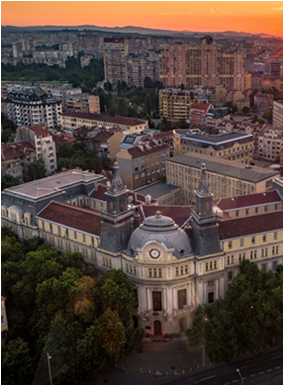 Bulgaria is a country in south-eastern Europe, the capital being Sofia. Its geography boasts a mixture of mountains and plains, with the Balkans running through the middle of the country. In recent years, Bulgaria has emerged as a tourist destination, offering inexpensive resorts and good beaches. The capital Sofia, the medieval capital Veliko Tarnovo, the coastal resorts of Golden Sands and Sunny Beach, and winter resorts such as Bansko are perenially popular with visitors. Traditional Bulgarian culture is derived from Thracian, Salvic and Bulgar roots. Many sites are of immense historical importance and are on UNESCO's World Heritage list, such as the Thracian tombs in Sveshtari. Another neat segue, leading me to the novel I'm featuring that's based in Bulgaria: 'Valley of Thracians' by Ellis Shuman Originally from Iowa, Ellis has been living in Israel since the age of fifteen. He served in the Israeli army, was the founding member of a kibbutz, and currently resides on a moshav outside Jerusalem. He lived and worked in Bulgaria during the years 2009 - 2010. Here's the synopsis for 'Valley of Thracians': A Peace Corps volunteer has gone missing in Bulgaria and everyone assumes he is dead, everyone except his grandfather, who refuses to give up hope. Retired literature professor Simon Matthews launches a desperate search only to be lured into a bizarre quest to retrieve a stolen Thracian artefact—a unique object of immense value others will stop at nothing to recover. Matthews travels through a Balkan landscape dotted with ancient tombs and fortresses, unaware that his grandson has been confined to an isolated mountain cabin, slowly recovering from a severe head injury. Nothing can be taken at face value, as the woman assisting Matthews in his quest and the nurse caring for his injured grandson may have ulterior motives in helping the two reunite. Even when Matthews succeeds in joining up with his grandson, departure from Bulgaria is only possible if the missing relic can be found. Amazon link to 'Valley of Thracians': Valley of Thracians 4. Mongolia 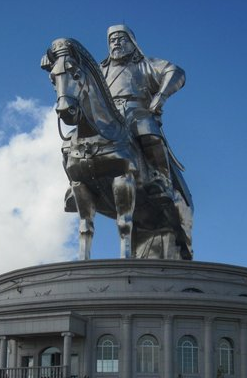 Mongolia, home to Ghengis Khan, the founder of the Mongol Empire, is a landlocked country in Central East Asia. The country is known as 'The Land of the Eternal Blue Sky', because it enjoys over 250 days of sunshine per year. The geography is diverse, including the Gobi Desert and cold, mountainous regions in the north and west. Much of Mongolia consists of steppe landscapes and forests. Mongolia is cold, high and windy; its capital, Ulan Baatar, is the world's coldest, with an annual average temperature of 0 degrees Celsius. Despite being the world's 19th largest country, Mongolia's population is small, being just under 3 million people. That's a lot of room to move! The steppe and desert landscape renders much of the country uninhabitable, however - not even the hardy Bactrian camel can survive in the Mongolian desert wastes. Crime, however, can and does flourish in Mongolia - as evidenced by my featured book: 'The Shadow Walker' by Alex Walters Set in a country struggling to come to terms with the legacy of its past and the promise of its future, 'The Shadow Walker' is a gripping thriller that introduces Inspector Nergui of the Mongolian Serious Crime squad. As winter's first snow falls on Ulan Baatar, the mutilated body of a British geologist is found in the city's most expensive hotel, apparently the fourth victim of a serial killer. With political pressure to solve the crimes mounting, Negrui, ex-head of the Serious Crime Squad, is ordered back to his former role, building an uneasy working relationship with his successor and protégé, Doripalam, and with Drew McLeish, a senior British CID officer sent out to support the investigation. But the murders continue - leading the officers through the disused factories of the decaying city, out on to the steppes among nomadic herdsmen and illegal gold prospectors, and down into the barren landscapes of the Gobi. And then McLeish himself is kidnapped. With political tensions mounting and time draining away, Nergui and Doripalam piece together a case that encompasses both personal tragedy and shadowy commercial interests in Mongolia's vast mineral and energy reserves. And, finally, in a long-abandoned warehouse amongst the decaying Soviet-era factories of Ulan Baatar, Nergui comes face to face with the only figure who can bring the story to its shattering conclusion. Amazon link to 'The Shadow Walker': The Shadow Walker 5. Antarctica 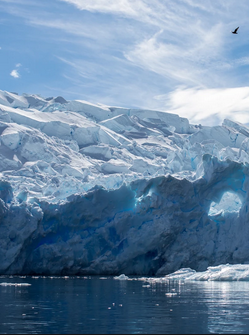 Beautiful and fragile Antarctica had long been on my radar when it came to places to visit, spurred on by one friend who's already been and another who's announced that she's going. I finally got there in 2017 and it was incredible! It's the world's most southerly continent, as well as the coldest, and includes the South Pole. At 5.4 million square miles, Antarctica is big, being nearly twice the size of Australia. Although it's not what most of us think of when we picture a desert, Antarctica only receives about eight inches of rain per year, mostly in coastal areas. Did I mention it's cold? Hell. yeah! The temperature in Antarctica has reached as low as −89 °C (−129 °F). Now that's chilly! Due to the harsh environment, there are no permanent human residents, but between 1,000 to 5,000 people work at the research stations scattered across the continent. Only cold-adapted organisms survive, such as penguins, seals, algae and bacteria. Makes you wonder what scope such an unforgiving, if beautiful, land can offer a novelist. Enter my fifth featured novel: 'Blood and Ice' by Robert Masello I came across 'Blood and Ice' by accident, attracted by the back blurb when browsing in my local library. At the time, I didn't realise it was a vampire novel, but 'Blood and Ice' doesn't deal with bloodthirsty teenagers chomping on each other's necks. Instead, it's a classy and interesting story, set in a remote Antarctic research station. Here's the synopsis: When journalist Michael Wilde is commissioned to write a feature about a remote research station deep in the frozen beauty of Antarctica, he is prepared for some extraordinary sights. But on a diving expedition in the polar sea he comes across something so extraordinary to be almost unbelievable - a man and woman chained together, deep in the ice. The doomed lovers are brought to the surface but as the ice begins to thaw the scientists discover the unusual contents of the bottles buried behind the pair, and realise they are all in terrible danger... Amazon link to 'Blood and Ice': Blood and Ice I'd love to hear from you!Can you add to this list? Are there any memorable novels that you've enjoyed that are located in unusual countries? How well did the author portray the country? Did it make you yearn to visit and find out more? Leave me a comment and let me know!
What makes a reader ditch a novel? It's rare for me not to read all the way to the end of a novel. I choose my fiction carefully, avoiding genres that I don't enjoy, such as romances. After a lifetime of reading, I know what appeals to me and what doesn't. (Not always, as you'll discover below - sometimes I get it wrong). The other night, though, I gave up on a book after finding some of the content offensive. It got me thinking. What might make a reader ditch a novel? As part of my 'Five' series, I'll be discussing some possible reasons. Let's go! 1. It's badly written  Some novels, whether traditionally or indie published, simply aren't well-written. Poor character development, a failure to round off the narrative properly, plot threads left hanging... the list goes on. Nobody wants to read such books. Dialogue is a common problem. Some authors struggle with getting it right; their characters' conversations fall flat. Not to mention my favourite bugbear - inappropriate and excessive speech tags. I gave up on one novel partly because the main character rarely said anything. Instead, she chirped and mumbled her sentences, reminding me by turns of a songbird or a sulky teenager. As she was supposed to be a feisty, kick-ass kind of gal, this irritated me. There were other reasons I abandoned the book, but when I read one chirp too many, it was game over. Speech tags are often unnecessary anyway; if an author has given his/her characters strong enough voices and the dialogue flows well, it should be obvious who's speaking. 2. Bad grammar, spelling and punctuation 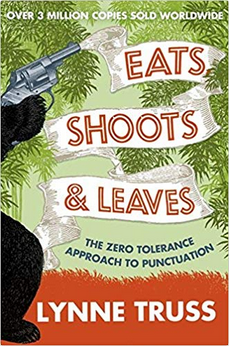 A criticism often aimed at self-published novels is that they're full of typos and poor grammar. Not always, of course, but there's some truth in the allegation. Whilst I love what self-publishing has done for the industry, I agree that too many novelists present their work with a disregard for the English language. However, it's also a trend I'm noticing with traditionally published books. It's not unusual nowadays to find typos and even plot errors in novels from big-name publishers. I'm told it's because many publishing houses are axing editors and proof-readers in a bid to cut costs. Whether that's true, I can't say, but it's no longer just self-published authors who have to defend themselves from criticism on this score. Some people, of course, believe it's not important. They say that as long as the plot flows well and the characters engage the reader, then typos and poor grammar don't matter. I say they do. Language is the medium through which writers create their work; shouldn't they be able to employ it correctly? If a musician plays a wrong note, it grates on the ear. The principle's no different with books. Typos jar on the reader, distracting from the narrative - hardly what the author intended. Would you rather be kissed or pissed? As for punctuation errors, as Lynne Truss so ably demonstrates in 'Eats, Shoots and Leaves', they can alter the entire meaning of a sentence. Correct punctuation can save lives. Take the following example: 'Let's eat, grandpa.' Miss out the comma, and cannibalism enters the picture - not a happy scenario for our aged relative: 'Let's eat grandpa.' Call the cops, someone! 3. The terrible trio - sex, swearing and violence I've lumped these together because they all turn off any reader who's sensitive to such issues. Some people don't care for brutality, profanity or sex scenes in novels. As I'll explain later, I ditched one book partly because of its violence. I'm not unduly squeamish, but what I was reading was a step too far for me. When it comes to swearing, I've been told the use of the F-word in my novels has upset some people, and I understand that. I rarely, if ever, swear. Often, though, profanity is necessary in fiction. It would be inauthentic for me to create a character like Adam Campbell in 'Guilty Innocence', and for him not to curse. He's a murderous psychopath - bad language goes with the territory. In contrast, my fourth novel, 'The Second Captive', contains little profanity. It simply wouldn't be right for the characters. As for sexual content, I love a good bit of smut! I may well write erotica one day. Some people cringe when fictional characters get down and dirty, however, and that's their preference. Each to their own. 4. The novel doesn't get with the reader Sometimes a novel can be well-written, a popular success, and yet something about it doesn't sit well with the reader. I experienced this with a certain novel, which I won't name as I dislike posting negatively about books or their authors. The book has 53 five-star and 18 four-star reviews on Amazon UK, and has clearly been well received. But I simply couldn't get into it, failing to engage with the characters or the storyline. The author's writing style didn't appeal, either. I read some reviews of the book after I abandoned it, and I'm glad I didn't continue. The book contains scenes of sexual torture along with animal abuse - definitely not my thing. By all accounts, the novel is very well written and has garnered critical acclaim, but for me it wasn't a good fit. My fault - I should have read the back blurb more carefully. 5. When an author promotes his/her own agenda Sometimes when I read a novel, I sense a personal agenda on the part of the author. This sometimes happens with political or religious issues, and I find it off-putting. As the novelist Iain Rob Wright mentioned in a blog post: 'I would never make my own views entirely obvious through my work, because then I am not creating fiction, I am writing propaganda.' I agree. It's usually easy to spot this one. Typically, a character will espouse a viewpoint that has no bearing on the plot, expanding at length via unnecessary dialogue or narrative. If axing such material wouldn't affect the storyline, then it's likely a spot of personal propaganda on behalf of the author is being deployed. Like many people, I resent being preached at. It may not mean I ditch the book altogether, but it does colour my view of it. What about you? What would make you ditch a novel? Apart from the five reasons above, are there any reasons you'd abandon a novel? Does sex, swearing or violence put you off a book? Do typos bother you? Leave me a comment and let me know!
Novelists are often advised to write a killer first line, a hook so powerful it'll drag the reader by the throat into the rest of the book. It's the old adage of making a good first impression, this time in literary form. Here's Stephen King's opinion on the subject: 'An opening line should invite the reader to begin the story. It should say: Listen. Come in here. You want to know about this.' Hard to argue with that! As part of the 'Five' series, in this week's post I'm examining five great opening sentences from novels. 1. The Crow Road - Ian Banks (1992) 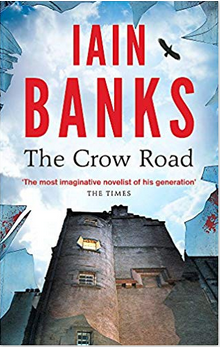 'It was the day my grandmother exploded.' Wow, what a kicker first line! Followed by: 'I sat in the crematorium, listening to my Uncle Hamish quietly snoring in harmony to Bach's Mass in B Minor, and I reflected that it always seemed to be death that drew me back to Gallanach.' Not bad for a second line, either! The rest of the book doesn't disappoint. I have a love/hate relationship with Iain Banks's novels, having loathed 'The Wasp Factory', been ambivalent about 'Stonemouth', and awed by 'The Crow Road'. The latter is the story of Prentice McHoan, who seeks answers about the disappearance of his uncle eight years ago. The Crow Road is the name of the book Prentice's uncle, Rory, was writing when he vanished, and is also a metaphor for death. Along the way Prentice questions the existence of God and the afterlife, fuelled by sex, drink, and illegal substances. It's a great read! 2. Middlesex - Jeffrey Eugenides (2002) 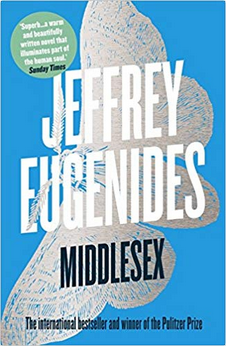 'I was born twice: first, as a baby girl, on a remarkably smogless Detroit day in January of 1960; and then again, as a teenage boy, in an emergency room near Petoskey, Michigan, in August of 1974.' Well, that's intriguing! Right from the start, we're made aware that 'Middlesex' is a story of intergender life, if the title didn't make it obvious. But why did the protagonist's second birth take place in an emergency room? Jeffrey Eugenides's clever opening salvo makes me keen to discover more.... 'Middlesex' is the story of Calliope Stephanides and her strange family secret. Calliope later becomes Cal, the narrator of the novel. He/she is an intersex individual raised as a girl, but who, hormonally speaking, is male. Growing up in 1970s Michigan, Cal/Calliope's story is set against a background detailing the experiences of Greek immigrants in the United States, and the fortunes of Detroit. 'Middlesex' won the 2003 Pulitzer Prize for Fiction. The book was also shortlisted for the National Book Critics Circle Award and the International Dublin Literary Award. 3. Nineteen Eighty-Four - George Orwell (1949) 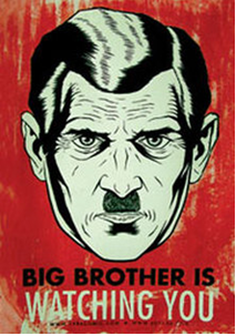 'It was a bright cold day in April, and the clocks were striking thirteen.' Regular readers of my blog will already know the high regard in which I hold this novel, ever since its story of dystopian tyranny stunned me when I read it as a teenager. And what a great opening line! Who wouldn't read that last word and think 'huh?' From the start, Orwell makes us aware we're entering a strange and disturbing world, one that's familiar and at the same time different. A world in which the calendar months haven't changed, but the way we tell time has. We're all conversant with the twenty-four hour clock, yet the way Orwell uses it grabs our attention. By a simple word trick, he sets the scene for life on Airstrip One, formerly Great Britain. A world in which, to quote from the book, 'who controls the past controls the future: who controls the present controls the past'. Enter Winston Smith, whose job it is to rewrite the past, despite inwardly rebelling against life in totalitarian Britain.'1984' is a grim read in places, especially the interrogation scenes, but it's deservedly a classic. 4. The Bell Jar - Sylvia Plath (1963) 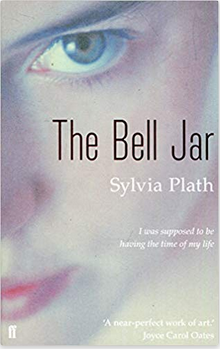 'It was a queer, sultry summer, the summer they electrocuted the Rosenbergs, and I didn't know what I was doing in New York.' In one sentence, Plath sets the scene: it's summer, it's 1953, our protagonist is in New York, and we already know she's confused. 'The Bell Jar' is not an easy read, being partly based on Plath's own experiences with mental illness. It's the story of Esther Greenwood, a young woman who wins an internship on a New York fashion magazine. At first, she's delighted, believing she'll finally achieve her dream of becoming a writer. The fast pace of New York only serves to frighten her, though, and she has no idea what to do with her life. The only alternatives appear to be motherhood or a job as a stenographer, neither of which appeal. Gradually, Esther's life slides out of control. She spirals into depression, the bell jar of the book's title being a metaphor for her mental prison. 'The Bell Jar', Sylvia Plath's only novel, was originally published in 1963 under the pseudonym Victoria Lucas. Plath committed suicide shortly after the book's UK publication. 5. Earthly Powers - Anthony Burgess (1980) 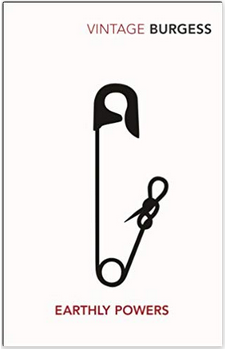 'It was the afternoon of my eighty-first birthday, and I was in bed with my catamite when Ali announced that the archbishop had come to see me.' So much information wrapped up in one sentence! What strikes me the most is the word 'catamite', a word we seldom hear nowadays, meaning it's immediately attention grabbing. Then there's the fact our protagonist tells us he's eighty-one. Ageism is alive and well in our society; many people write off the elderly as being past sex, but this one clearly isn't. Throw religion into the mix in the shape of the visiting archbishop, and Burgess gives us a masterly opening to his novel. 'Earthly Powers' tells the story of Kenneth Toomey, a novelist who embarks on writing his memoirs. Toomey is also asked by the Archbishop of Malta to help with the canonisation of Carlo Campanati. Campanati uses his guile to rise through the ranks of the Catholic Church; Burgess uses him to illustrate the lust for power and what men will do to attain it. Power, sex and religion - the stage is set for a great read! Do you have any favourite opening lines from novels? Leave a comment and let me know!
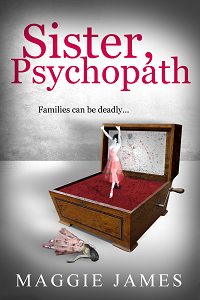 My second novel, 'Sister, Psychopath', was inspired by a real-life crime. At a writing workshop, our facilitator told us about a murder carried out by a mentally disturbed woman. She fixated on a male colleague, a married man who had a young child. They were never lovers but her obsession with him steadily grew, so much so that she decided to murder his wife and child, believing she could then marry him. She went ahead and killed his family, but her daughter became suspicious and contacted the police. The woman was arrested and convicted, receiving a life sentence. When I heard this, my curiosity was piqued. How would it feel, I wondered, to be that woman's daughter? To make such a terrible discovery about her mother? The point our facilitator was making was that true crime is often a great source of inspiration for fiction writers. In this instance, it certainly was for me. Out of this premise came the character of Megan Copeland in 'Sister, Psychopath'. I ended up taking the novel down a different path, away from Tilly Copeland's fixation on her boss, exploring instead the relationship between Megan and her sociopathic sister Chloe. However, I'll always be grateful to our workshop leader for sowing the seeds for my second novel. My experience isn't unusual, of course. Many novels have been influenced by true-life crimes. In this week's blog post I'll continue my 'Five' series by giving some examples. 1. Psycho - Robert Bloch, 1959 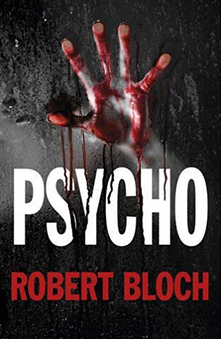 Written in 1959 by Robert Bloch, Psycho was inspired by the real-life crime of Ed Gein, arrested in 1957 for the murders of two women in Wisconsin. When police searched his home, they found furniture and clothing made of skin and female body parts. Gein had raided graveyards to make a skin suit that he planned to wear while pretending to be his dead mother. Bloch's novel created the iconic character of motel owner Norman Bates, who murders his mother and takes on her personality. Even if they've not read the book, most people are familiar with the story from the famous Alfred Hitchcock film. Remember the shower scene?! Here's the synopsis of the novel from Amazon: 'She was a fugitive, lost in a storm. That was when she saw the sign: motel - vacancy. The sign was unlit, the motel dark. She switched off the engine, and sat thinking, alone and frightened. She had nobody. The stolen money wouldn't help her, and Sam couldn't either, because she had taken the wrong turning; she was on a strange road. There was nothing she could do now - she had made her grave and she'd have to lie in it. She froze. Where had that come from? Grave. It was bed, not grave. She shivered in the cold car, surrounded by shadows. Then, without a sound, a dark shape emerged from the blackness and the car door opened. Psycho is not a tale for queasy stomachs or faint hearts. It is filled with horrifying suspense and the climax, instead of being a relief, will hit the reader with bone-shattering force.' 2. The Silence of the Lambs - Thomas Harris, 1988 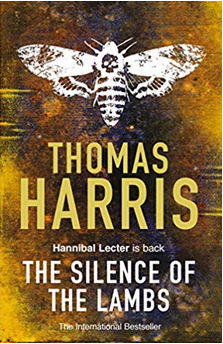 The exploits of Ed Gein also served as the inspiration for Thomas Harris's 1998 novel The Silence of The Lambs. In the book, Gein morphs into a serial killer known as Buffalo Bill, a man who kidnaps overweight women, starves them for a few days and then kills and skins them. Like Psycho, most people know the story even if they've not read the book. Who hasn't seen the film clip of Hannibal Lecter expressing his preference for Chianti to accompany a dish of human liver?! Here's the Amazon synopsis of the novel: 'An FBI trainee. A psychopath locked up for unspeakable crimes. And a serial killer getting ever closer to his latest victim ... FBI rookie Clarice Starling turns to Dr. Hannibal Lecter, monster cannibal held in a hospital for the criminally insane, for insight into the deadly madman she must find. As Dr. Lecter invites her into the darkest chambers of his mind, he forces her to confront her own childhood demons as the price of understanding, an unspeakable tuition he exacts to teach her how the monster thinks. And time is running out . . .' 3. The Black Dahlia - James Ellroy, 1987 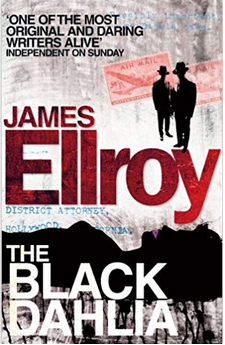 James Ellroy based The Black Dahlia on one of Hollywood’s most infamous unsolved crimes. In 1947, waitress Elizabeth Short’s body was found mutilated and dumped in a car park in Los Angeles. The murder horrified the public; newspapers weighed in by sensationalising the case, nicknaming the victim 'Black Dahlia' because she always wore black clothing. Ellroy's novel explores how the lives of the two detectives who investigate the case, Dwight Bleichert and Lee Blanchard, are destroyed by it. For Blanchard, the case revives memories of his sister Laurie, who vanished and was never found, fuelling his fears about what might have happened to her. Bleichert, however, develops an obsession with Black Dahlia, fancying himself in love and making connections between her troubled life and his own. Here's the synopsis from Amazon: 'A neo-noir crime novel from the legendary crime novelist James Ellroy. Los Angeles, 15th January 1947: a beautiful young woman walked into the night and met her horrific destiny. Five days later, her tortured body was found drained of blood and cut in half. The newspapers called her 'The Black Dahlia'. Two cops are caught up in the investigation and embark on a hellish journey that takes them to the core of the dead girl's twisted life...' 4. We Need to Talk about Kevin - Lionel Shriver, 2003 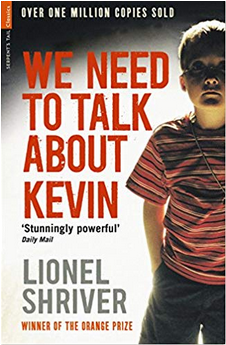 Lionel Shriver's 2003 novel We Need To Talk About Kevin was inspired by the 1999 shootings in Colombine, USA. The Colorado town is where Eric Harris and Dylan Klebold murdered twelve fellow students and a teacher at their high school. Shriver references the killings in her novel by making the Kevin of the title commit mass murder in a similar way. The book is structured in the form of letters from Eva Khatchadourian to her estranged husband Franklin Plaskett, in which she charts her cold relationship with their son Kevin. Her maternal indifference and occasional violence towards the boy may, she fears, have contributed to his sociopathic tendencies. In the book, Shriver examines the age-old question of nature versus nurture to determine why Kevin acts the way he does. Lacking normal emotions and the capacity for love, he is contemptuous and manipulative, reserving special hatred for his mother. He's certainly a hard character to like, let alone love. Here's the synopsis from Amazon: 'Eva never really wanted to be a mother; certainly not the mother of the unlovable boy who murdered seven of his fellow high school students, a cafeteria worker and a teacher who tried to befriend him. Now, two years later, it is time for her to come to terms with marriage, career, family, parenthood and Kevin's horrific rampage in a series of startlingly direct correspondences with her absent husband, Franklyn. Uneasy with the sacrifices and social demotion of motherhood from the start, Eva fears that her alarming dislike for her own son may be responsible for driving him so nihilistically off the rails.' 5. Room - Emma Donoghue, 2010 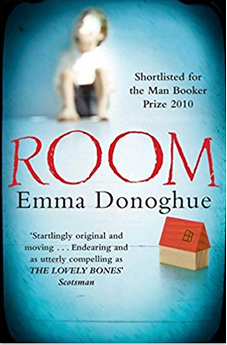 Emma Donoghue wrote her acclaimed novel, Room, in 2010 after the Josef Fritzl case became news world-wide. In 2008, Elisabeth Fritzl, 42, told police she had been held captive by her father for twenty-four years in makeshift accommodation below the family home in Austria. Fritzl had raped her throughout that time and as a result she had given birth to seven children by him. Among them was five-year-old Felix, the inspiration for Donoghue’s Jack, held captive along with his mother in Room. To me, Room is an incredible book. Emma Donoghue took a brave step in narrating its events from the perspective of a five-year-old boy and her gamble largely pays off. In places, it doesn't quite work - Jack sometimes acts with a maturity beyond such a young child's capabilities, but I still consider Room an excellent read. Had I written it, I'd have told the story from Ma's point of view, as I suspect many authors would have done. I admire Donoghue, therefore, for not taking the obvious route when writing the book. Her way is powerful because of course, Jack doesn't understand his situation, enhancing the suspense for the reader as the truth about Room is revealed. His childish perception also acts as a tool to inject humour into the narrative. It's gripping stuff! Here's the synopsis from Amazon: 'Today I'm five. I was four last night going to sleep in Wardrobe, but when I wake up in Bed in the dark I'm changed to five, abracadabra. Jack lives with his Ma in Room. Room has a single locked door and a skylight, and it measures ten feet by ten feet. Jack loves watching TV but he knows that nothing he sees on the screen is truly real - only him, Ma and the things in Room. Until the day Ma admits there is a world outside. Devastating yet uplifting, Room by Emma Donoghue is a luminous portrait of a boundless maternal love. It has sold more than two million copies, was a number one bestseller and was shortlisted for the Man Booker and Orange prizes. Few books have reached modern classic status so swiftly.' Bonus - a sixth book! This one's a true crime story... 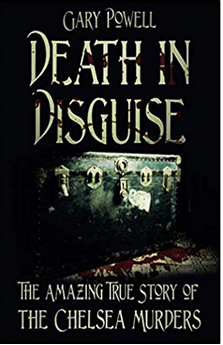 Whilst it's not a novel but a true crime story, I wanted to include Death in Disguise: The Amazing True Story of the Chelsea Murders, by Gary Powell. I thought it would be interesting to add at least one real-life crime book to this blog post. Here's the synopsis from Amazon: Victorian Chelsea was a thriving commercial and residential development, known for its grand houses and pleasant garden squares. Violent crime was unheard of in this leafy suburb. The double murder of an elderly man of God and his faithful housekeeper in two ferocious, bloody attacks in May of 1870 therefore shook the residents of Chelsea to the core. This volume examines this extraordinary case, one which could have leapt straight from the pen of Agatha Christie herself: the solving of the case relied on the discovery of a packing box dripping with blood, and the capture of a mysterious French nephew. This volume, compiled by a former detective, looks at the facts: no direct evidence to place the suspect at either of the crime scenes; no weapon recovered; no motive substantiated. It lets you, the reader, decide: would you, on the evidence presented, have sent the same man to the gallows? Sounds fascinating! If you're interested, here's the link to Gary's book on Amazon or you can click the image. Isn't that a fantastic cover, by the way? Let's hear from you! What novels based on real-life crimes have you enjoyed? Leave me a comment and let me know!
I'm a huge admirer of Stephen King. I love his work, but I'm also in awe of his prolific output. Many of his novels are over 700 pages in length and he's written so damn many of them - fifty-eight, to be exact! He's also penned over two hundred short stories and five non-fiction books. OK, so he embarked on his writing career decades ago, but even so the sheer volume of his output is impressive. In this week's blog post, I'll examine five other prolific authors. 1. Dame Agatha Christie 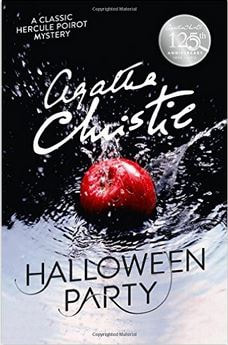 Dame Agatha Christie was an English crime novelist, short story writer and playwright. She wrote sixty-nine novels and nineteen plays, published over a fifty-six year period, and she also authored romantic fiction under the pseudonym Mary Westmacott. Her murder mystery play, The Mousetrap, holds the record for being the world's longest-running theatre production; in 1971 she was made a Dame of the British Empire for her enormous contribution to literature. Besides being prolific, Dame Agatha is the most published novelist in history, and her estimated sales are in the region of three billion (!) books. I read all her detective stories during my teens, being swept away by the sleuthing skills of Miss Marple and Hercule Poirot, as well as Christie's fascinating plots. Her novels have been translated into over one hundred languages. 'And Then There Were None' is her best-selling title, having sold over 100 million copies to date, making it one of the most popular books of all time. Wow! 2. Dame Barbara Cartland 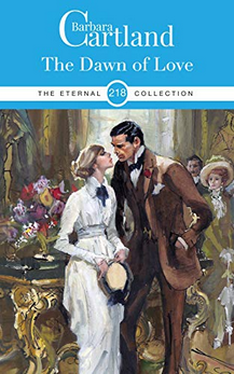 Another Dame of the British Empire! Barbara Cartland wrote 723 novels, which have been translated into thirty-six languages, and she holds the world record for the most novels published in a single year - twenty-three. Twenty-three?! Did she ever sleep? Admittedly her books tend to be short, but even so... She wrote romantic fiction primarily but also plays and music. Her book sales reportedly top 750 million copies, although some sources have put the figure at over two billion. Two billion?! Even if the first figure is more accurate, that's a lot of book sales - I can only aspire to such numbers! Barbara Cartland's books are tame by today's standard, featuring virginal heroines and little, if any, sexual imagery. Her later novels were historical romances, which made it easier to cast virgins as the protagonists. During her later years, she became a self-proclaimed expert on romance although her views were considered hopelessly outdated by many. I well remember her many television appearances in which she'd expound her views on various issues, including gentlemanly conduct and how to keep the romance in relationships. She was a very memorable character, usually appearing bedecked in jewels, wearing flouncy pink dresses and clutching a fluffy white dog. They don't make them like that anymore! 3. Nora Roberts 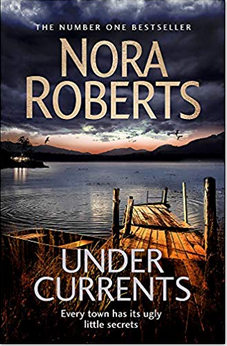 The only one of my chosen novelists still alive, Nora Roberts also writes romance novels and to date has published two hundred and nine. She concentrates on one book at a time, which makes her prolific output even more remarkable. She writes for eight hours a day, every day, without fail, even when on holiday. (I'm starting to doubt whether the authors I've chosen are human!) In the nineties, her publishers decided they couldn't keep pace with her output and asked her to consider adopting a pseudonym so they could publish more of her work each year. She decided to use her new pen name to switch tack and begin writing romantic suspense fiction, under the name of J D Robb. As J D Robb, Roberts has also published a series of science fiction novels set in the mid-twenty-first century, featuring a New York City detective. Whilst these novels are police procedural ones as well as science fiction, J D Robb has maintained the romantic element by focusing on the relationship between Detective Eve Dallas and her husband. Since 1999, every one of Nora Roberts's books has been a New York Times bestseller, and she was the first novelist to be admitted to the Romance Writers of America's Hall of Fame. An amazing woman! 4. John Creasey 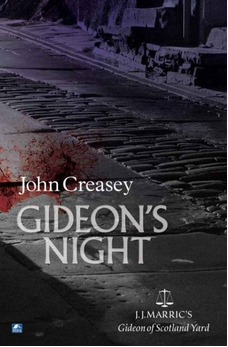 John Creasey was an English crime and science fiction writer with six hundred novels to his credit, using twenty-eight pseudonyms. Six hundred?! I need to up my game, and quickly... Many of his characters, such as The Honourable Richard Rollison (The Toff) and Commander George Gideon of Scotland Yard, continued through a series. Besides crime and science fiction, he also wrote Western novels and romances, using his various pen names. In 1962, Creasey won an Edgar Award from the Mystery Writers of America (MWA) for 'Gideon's Fire', written under his pseudonym J. J. Marric. In 1969 he received the MWA's greatest honour, the Grand Master Award. In the UK, Creasey founded The Crime Writers Association (CWA), which awards the New Blood Dagger each year for a first book by an unpublished writer. Another recipient of a UK honour, he was awarded the MBE (Member of the Order of the British Empire) for his services during World War Two. 5. Isaac Asimov 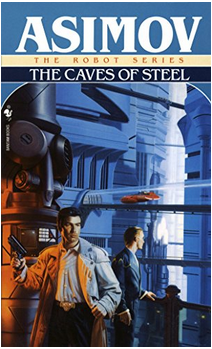 The last of our prolific wordsmiths, Isaac Asimov, was a science fiction writer, although he also wrote scientific non-fiction, being a professor of biochemistry at Boston University. He either wrote or edited over five hundred books as well as an estimated ninety thousand letters. Like the other authors I've mentioned, Asimov's works have been extensively translated into other languages. Asimov received several awards for his writing, as well as fourteen honorary doctorate degrees. His short story 'Nightfall', written in 1941, was voted by The Science Fiction Writers of America as the best one ever written in its genre and he was made a Grand Master of the SFWA in 1987. His most interesting accolade may well be the fact that in 2009 a crater on Mars was named after him - I love that! Unusual facts about Asimov? He claimed in the third volume of his autobiography to love small, enclosed spaces, citing his childhood desire to own a subway magazine stand, in which he'd ensconce himself and listen to the rumble of the trains as he read. Each to their own... Phew! I feel exhausted... I'm sure you're probably as dumbstruck as I am at the literary output of the authors I've mentioned! I feel tired just thinking about writing six hundred books - although, given my late start as a novelist, it's unlikely I'll achieve one hundred titles, let alone six times that number. Speaking of which, I'd better stop blogging and get back to writing - I'll catch up with you again in my next post. Until then...
Anyone who knows me will testify how passionate I am about foreign travel. I've been fortunate enough to have done lots of globe-trotting in my life, with more trips planned; it makes sense, therefore, that a keen reader like me should enjoy novels based around travel. In this week's post, I examine as part of my 'Five' series some well-known books classed as travel fiction or memoirs. Commencing take-off.... 1. The Beach - Alex Garland 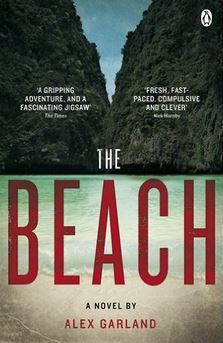 Written in 1996 by British author Alex Garland, 'The Beach' tells the story of Richard, who, when the novel opens, is staying in the notorious Khao San Road area of Bangkok (I've spent many a happy hour exploring Khao San's peculiarities - I love the place!) Richard becomes fascinated by what he hears about a remote beach situated in the Gulf of Thailand, described as stunningly beautiful and inaccessible to tourists. Daffy Duck, the Scotsman who tells him about this tropical Garden of Eden, leaves him a map disclosing its location before committing suicide. Intrigued, Richard hooks up with a French couple, Etienne and Francois, and the trio set off to find the beach. Once there, they discover a secretive community living alongside Thai cannabis growers. Events, of course, soon take a sinister turn - I won't say more as I don't wish to give plot spoilers, but at times 'The Beach' has distinct overtones of William Golding's 'Lord of the Flies'. The body count grows amid the backdrop of the annual Tet Festival. Will Richard survive the experience? 2. On The Road - Jack Kerouac 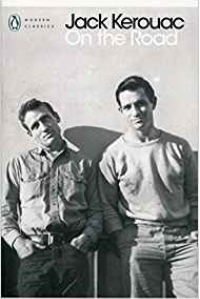 Written in 1951 but not published until 1957, 'On The Road' is a novel by Jack Kerouac, based on his travels across America. The story epitomises the post-war Beat and counter-culture movements, being heavily based around spiritual quests and the rejection of materialism, and laced with copious amounts of jazz music, sex and psychedelic drugs. Kerouac emerges in the book as the narrator, Sal Paradise, who embarks on a road trip with his friend Dean Moriarty (based on Neal Cassady, another major figure of the Beat movement.) Saddened by his recent divorce, Sal is eager to accompany the free-spirited Dean and discover what life on the road can offer him. They criss-cross the country from coast to coast, hitting San Francisco, New York, New Orleans, Denver and Detroit. As someone who has long held an ambition to drive across the USA, this fascinates me! A weird fact about 'On The Road' - the first draft was typed on a continuous 120-feet long scroll of tracing paper sheets, cut to size and taped together. The novel was transcribed from Kerouac's notebooks and typed without margins or paragraph breaks, taking him just three weeks (wow, that's fast!) to complete. I can only assume he couldn't afford proper paper on which to type! The scroll still exists and was bought by the owner of the Indianapolis Colts for $2.43 million in 2001. 3. Eat, Pray, Love - Elizabeth Gilbert 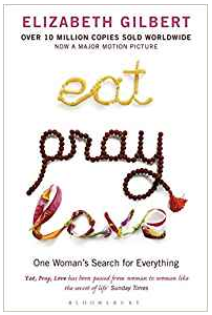 'Eat, Pray, Love' was written in 2006 by American author Elizabeth Gilbert and tells the story of her travels following her divorce and unsuccessful rebound relationship. The book is split into three sections, each corresponding with a different location in Gilbert's travels. First she spent four months in Italy, eating and enjoying life, which is the 'eat' section of the narrative. As a foodie and Italophile, I love this part! Next came three months in India, where Gilbert explores her spirituality ('pray'). Finally she travelled to Bali, where she fell in love with a Brazilian businessman ('love'), whom she subsequently married. The book has attracted mixed reviews, with many being critical of Gilbert's alleged self-absorption. Others, like Oprah Winfrey, have loved the memoir (Oprah devoted two episodes of her show to it) and the 2010 film version has also proved very popular. Gilbert has also written another memoir ('Committed: A Skeptic Makes Peace With Marriage') as a sequel to 'Eat, Pray, Love', as well as short stories, essays and novels. 4. Around The World in Eighty Days - Jules Verne 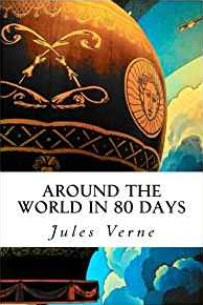 Ah, the classic Jules Verne novel, beloved since its publication in 1873! The book tells the story of Phileas Fogg and his valet Passepartout as they attempt to win a £20,000 bet as to whether the pair can circumnavigate the globe in eighty days. The traveller in me thrills at the challenge - perhaps I should give it a go sometime! Fogg and Passepartout travel by rail and steamer, journeying first to Egypt, then to India, Hong Kong, Japan and the USA before crossing the Atlantic back to London. Despite what you see on the book cover, they never set foot in a balloon - the idea is brought up in one of the chapters but dismissed as being too risky. The image of a balloon has become synonymous with the book, however, thanks to the 1956 film adaptation. Many people have since circumnavigated the world in eighty days or less, including British actor and fellow travel-holic Michael Palin, who made the trip in seventy-nine days as part of a very entertaining 1989 TV travel documentary. 5. Backpack - Emily Barr 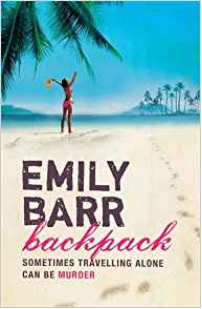 This novel brings back memories! I came across it in a hostel in the beach resort of Mui Ne in southern Vietnam, and read it in one go whilst stretched out on a lounger next to the sea. Happy days! Here's the back blurb: It's New Year's Day and the year isn't kicking off well for Tansy: her mother's dead, she's a cocaine addict and her boyfriend has just left her. A trip around the world seems like the only option except that she's not interested in seeing the world, just escaping from it, and the last people she wants to hang out with are backpackers. Like a lot of travellers on the Lonely-Planet-led Asian Grand Tour, Tansy is intensely irritating at first. Always on the look out for the "real" Vietnam--the one in which she can walk around "like a model, fanning myself gently, strolling into ancient temples and learning about inner peace"--she is opinionated, narrow-minded and remarkably naive (for a supposed media luvvy). Once she has shrugged off her addiction to lines of coke, skinny lattes and Nicole Fahri jumpers, she becomes more appealing. So by the time she's fallen for Max, a fellow traveller, she'll have won you over and you'll be just as worried as she is about the serial killer who appears to be on her trail... Let's hear from you! Wow, this post has made me want to pack my rucksack! Have you read any of the books I've mentioned? Any other travel-based books that you love? Leave a comment and let me know!
|
Categories
All
Subscribe to my blog!
Via Goodreads
|
Join my Special Readers' group and receive a free copy of 'Blackwater Lake'!
|
Privacy policy Website terms and conditions of use
Copyright Maggie James 2018 - current date. All rights reserved.
Copyright Maggie James 2018 - current date. All rights reserved.
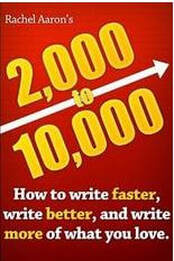
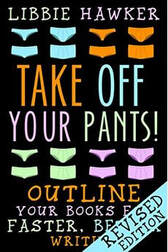
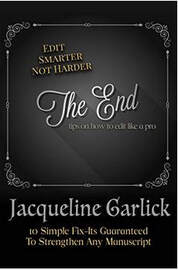
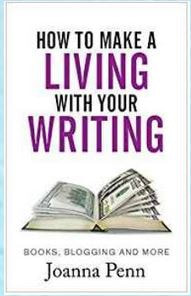
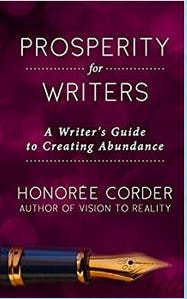

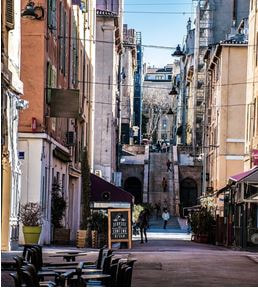
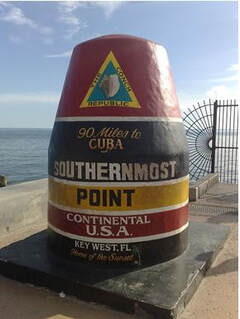
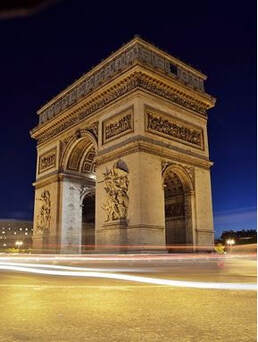
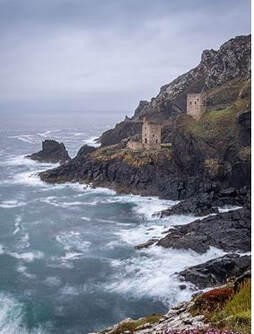
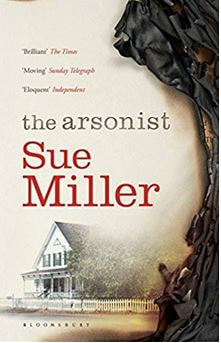
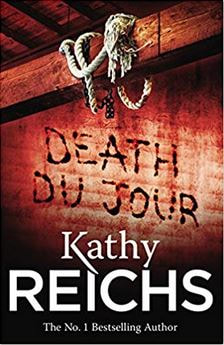
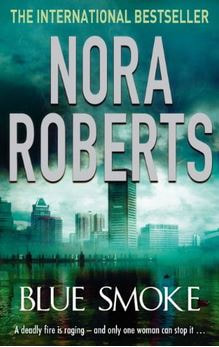
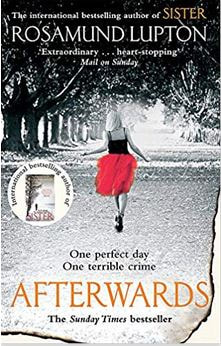
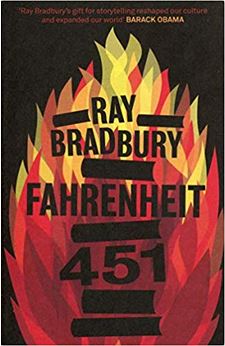
 RSS Feed
RSS Feed
